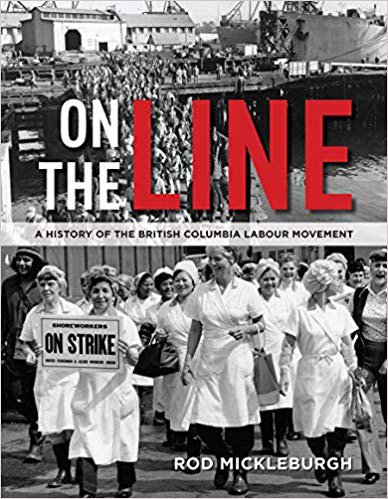
On The Line: A History of the British Columbia Labour Movement by Rod Mickleburgh (Review)
On The Line is an account of BC trade unions by the BC Labour Heritage Centre (an offshoot of the BC Federation of Labour) written by retired Vancouver Sun labour reporter Rod Mickleburgh. In a well illustrated and lively manner he tells the story of workers’ organizations and struggles, from Vancouver Island Coal miners in the 1850s to teachers’ struggles today.
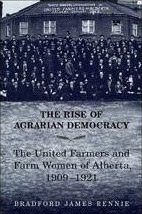
The Rise of Agrarian Democracy: The United Farmers and Farm Women of Alberta, 1909-1921 by B.J. Rennie
The Rise of Agrarian Democracy is the story of how Alberta farmers built a movement that elected the longest lived experiment in farm populist government in North America—the United Farmers of Alberta (UFA) from 1921 to 1935. B.J. Rennie’s aim is to tell and analyze how this mass mobilisation arose through the development of “a movement culture” in three steps.
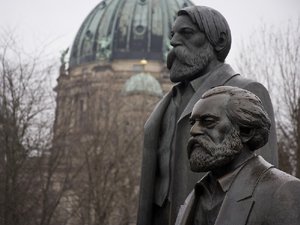
Engaging the Communist Manifesto
The Communist Manifesto is the founding statement of the revolutionary socialist tradition. In it, Engels and Marx set out a political method that emphasizes capitalism's dynamism and volatility; the need to relate to the exploited and oppressed in the struggle for socialism; to differentiate revolutionary socialists from other political alternatives; and to inspire a struggle for a socially just and fully democratic world. In the following essay, we examine how Marx and Engels saw the evolution of the Manifesto and its various uses in the struggle against capitalism in the last 160 years.
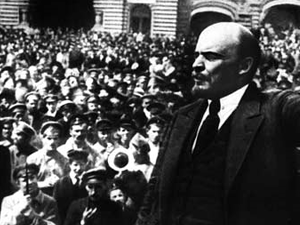
How Lenin developed his theory of the revolutionary party
The delegates were gripped with immense enthusiasm at the birth of the first workers’ republic in the history of humanity. In the words of American journalist John Reed: “by common impulse we found ourselves on our feet, mumbling together into the smooth unison of the Internationale.” Arise ye workers from your slumbers! Arise ye prisoners of want!
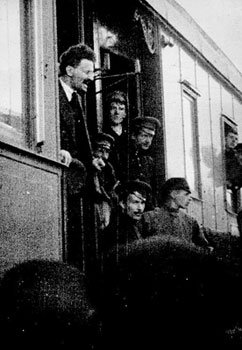
Leon Trotsky: Life of a Revolutionary
August 2010 marked the seventieth anniversary of the assassination of Leon Trotsky at the hands of a Stalinist agent. Here we reprint an article by British Marxist Duncan Hallas on the life and legacy of Trotsky.
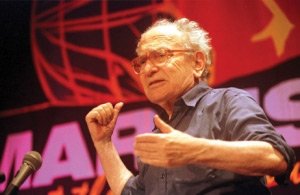
Tony Cliff's Revolutionary Life
Biographer Ian Birchall believes Cliff's is such an important life that he has devoted 560 pages to it. These are followed by big slabs of bibliography, index, and notes. These academic-style appendices sit oddly with his subject, for Cliff was the most informal of political figures.
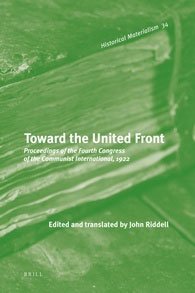
Toward the United Front: Proceedings of the Fourth Congress of the Communist International, 1922
John Riddell here begins bringing to a close an epic project of over ten years duration – the publication in English of the entire proceedings of the Third International, or Comintern, in Lenin’s time.
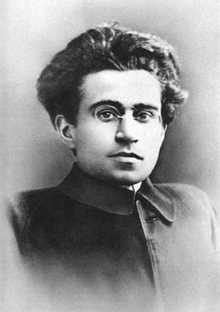
Gramsci: Revolutionary Activist
One of the leading Marxist activists in the classical revolutionary socialist tradition is Antonio Gramsci, an Italian socialist militant who saw the revolutionary potential in Italy’s post-World War One strikes; who became the leader of the Italian Communist Party in the 1920s; and who, as a prisoner of Mussolini’s fascist regime, reflected on these experience to ask how a revolutionary socialist party can build ‘hegemony’ or moral authority to win over a majority of workers to transformational change.
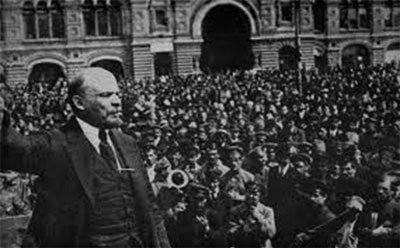
Rediscovering Lenin
Lenin led a successful workers’ revolution, but are his ideas about organization still relevant today?
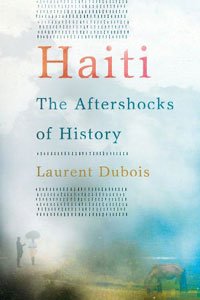
Haiti: From Independence to Occupation
Haitians have suffered mightily for repeatedly defying and defeating the imperial order.
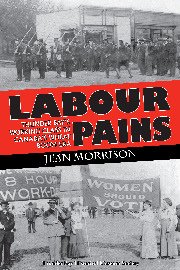
Labour Pains: Thunder Bay's Working Class in Canada's Wheat Boom Era (Review)
This is a study of working class formation. In particular, it is the story of the most advanced Thunder Bay (then Fort William and Port Arthur) workers from the 1880s to World War One as measured by such forms of autonomous institutional completion as trade unions and political parties.
